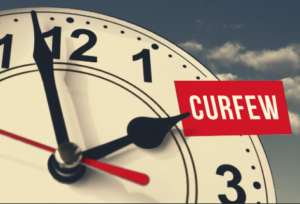
D-Day — The day that saved the world
IT is quite natural that the events commemorating the allied invasion of Normandy, better known as D-Day, will hold more significance for Europeans, Britons, Americans, and Canadians.
After all, it was their soldiers who made the ultimate sacrifice in that operation that eventually led to the defeat of Adolf Hitler and Nazi Germany in World War II.
Today marks the 70th anniversary of that massive effort, code-named Operation Overlord, which, as in the past, is being commemorated with ceremonies attended by world leaders, including Queen Elizabeth II.
While the allied casualties were heavy, it was a price worth paying. For there was no doubt that Hitler, who proved himself to be one of the most vicious tyrants of all time, was intent on world domination driven by an ideology that preached extermination and subjugation of people deemed to be inferior.
Thankfully, that sort of philosophy no longer exists among well-thinking Germans today, for we have seen, over many years, German involvement in the D-Day ceremonies which also demonstrates the unity that now exists in Europe.
In fact, German Chancellor Angela Merkel, as she has done in previous years, as well as a number of German veterans, will attend D-Day commemorations in Normandy, France, today.
We share the view expressed by some analysts that the decision of French President Francois Hollande to invite Russian President Vladimir Putin to participate in the official ceremony, despite President Putin’s exclusion from the G-7 summit in Brussels, Belgium, is “justified recognition of the Soviet Union’s great sacrifice in defeating Hitler”.
After all, the Soviet Union is reported to have lost an estimated 20 million people to the war, half of whom were soldiers.
At the same time, even as we acknowledge that D-Day’s immense significance should not be mired in politics, we believe that President Hollande’s gesture can go a far way in helping to change President Putin’s outlook on the Ukraine crisis, which seems to be worsening slowly. But that, of course, depends on how other world leaders will interact with President Putin today and onwards.
For the moment, though, today’s ceremonies, we know, will honour the brave men and women who fought in defence of freedom and democracy.
Some of them, as Mr Merrick Needham points out in his article in today’s edition, are Jamaicans who were members of the bomber crews of Britain’s Royal Air Force and the Royal Canadian Air Force.
The world, we know, is grateful for their sacrifice. For, had the allied forces failed to stop Hitler, the world as we now know it would be different.
More than 20 years after D-Day, United States President Lyndon Johnson, in an address to the American Congress in which he urged passage of the voting rights act, said: “At times, history and fate meet at a single time, in a single place, to shape a turning point in man’s unending search for freedom.”
D-Day, no doubt, was one of those times.






















